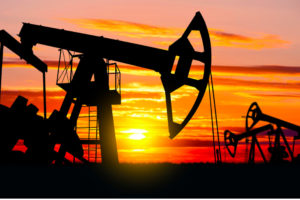In the oil and gas industry, it is very important that your operations focus on improving energy efficiency because, at its core, it can help reduce your energy use, improve productivity, and lower operating costs.
Why Improve Energy Efficiency in Oil and Gas Operations?
- Energy efficient practices reduce costs along the whole supply chain.
- It is an important component of a company’s environmental strategy.
Energy Efficiency Staircase
From analyzing where to drill and well performance to transportation after the oil is extracted, effective energy management touches all areas of oil production and refining. Oil and gas companies should have an idea of where inefficiencies lie to create goals and action plans. They should also perform regular energy efficiency reviews and routine evaluation of progress using metrics and data.
Assessing an energy management cycle involves the forecasting of future energy demand based on the existing knowledge of the system. Applying energy management systems with the use of technology and data management systems to analyze and control energy use in production and refining processes is one of the main ways that companies in the oil and gas sector can begin to increase efficiency.
Shell has put together a method of assessing and improving energy management (referenced here).
5-stage energy efficiency ‘staircase’ (developed by Shell)
- Understand your facilities energy profile type
- Perform an assessment of the energy demands on each installation
- Meaningful performance measures and analysis with real-time data
- Effective management review and forecasting processes
- Embed ownership and culture of energy management in production teams
5 Ways to Improve Energy Efficiency

Efficiency can be limited by mechanical, chemical, or other parameters like the age and design of equipment. Energy in the oil and gas industry is usually wasted in two main regions. The first is the generation, distribution, and conversion units and the second is downstream processes.
1. Metering
Metering is one area where you will want to look at when it comes to energy efficiency. There are drawbacks to traditional metering techniques. For example, having separate HMIs in the metering and DCS systems is a duplication of effort – which causes inefficiency.
Traditional systems also require quite a bit of maintenance because of cybersecurity risks which costs both time and money. If the system is not properly maintained, you could have much bigger issues than an inefficient system.
Many meters were traditionally installed without proper documentation, maintenance or calibration schedules. The increase in production cost and continuous fluctuation in crude oil prices calls for a need to improve flow rate metering by the oil and gas industry.
2. Improved Drilling

Thanks to advances in seismic surveying and analysis, and drilling techniques, many companies are seeing improved drilling success rates.
Drilling techniques, in particular, have seen improvement through the increased use of hydraulic fracturing and horizontal drilling. These techniques have helped to increase initial production rates. For example, the injection of more proppant during the hydraulic fracturing process and the ability to drill longer horizontal components have made for better well productivity.
Even if fewer wells are drilled, the ones that are being created are drilled more quickly and located in more productive areas, which led to increased production and profitability per well.
3. Innovative Data Acquisition and Management
The creation of the new, fully optimized digital oilfield with more sophisticated
information technology and data technology lead to more high speed communication and better data mining techniques. A centralized data management system can be used to quickly locate real-time data to make better decisions upon analysis and allows companies to obtain more production from each asset.
Centralized data management systems like PetroBase Pro benefit entire teams and allow those teams to seamlessly share data and insights with one another easily while also eliminating duplicate data entry to save valuable time and money.

Centralized data management systems like PetroBase Pro also allow personnel to:
- Observe daily production values.
- View failure Analysis and operational histories.
- Export proprietary well and production data.
- Get access to simple and intuitive gauge sheets.
- Electronically load accounting data and allocate production.
- Integrate all operational data types to a single source.
- Streamline operational decisions.
- And much more!
A great centralized data management system should benefit everyone involved in operations including: engineers, geologists, pumpers, foremen, office/administrative staff, and field personnel.
Click below to learn more about our system or shoot us a message by filling out our contact form.
4. Leak and Spill Prevention
No oil and gas company wants to experience a leak or spill and steps need to be taken to prevent their occurrence. Not only does a leak or spill cause a loss in revenue but it can also become a PR nightmare for a company because of the damage that is caused to the environment.
Companies should bring in leak protection technologies that can detect things like dangerous gas leaks.
Individual companies that do not have the cash to finance research on new methods of spill prevention often look to industry sponsored centers. Staying informed and up to date on current spill prevention strategies and implementing them is critical to continued success, safety, and productivity.
Many companies are also setting their own spill reduction goals in addition to those set by federal and state regulations.
5. Use of Energy Efficient Equipment
This one is pretty straightforward but we cannot express how important it is to invest in energy efficient equipment. The use of energy efficient equipment such as turbines, pumps, compressors, and more can help greatly reduce the energy consumption across the entire supply chain.
Carrying out regular energy audits and upgrading equipment to more innovative and efficient solutions are both crucial when moving your operations to be more efficient.
By looking closely at where your business could improve energy efficiency, you can start to implement changes that will make your processes and operations more productive to save time, money, and energy.
PetroBase will continue to grow and work diligently to remain a reliable source for oilfield software and data solutions.
